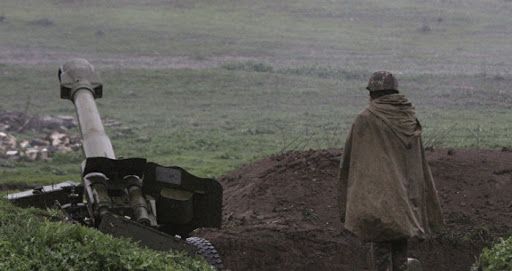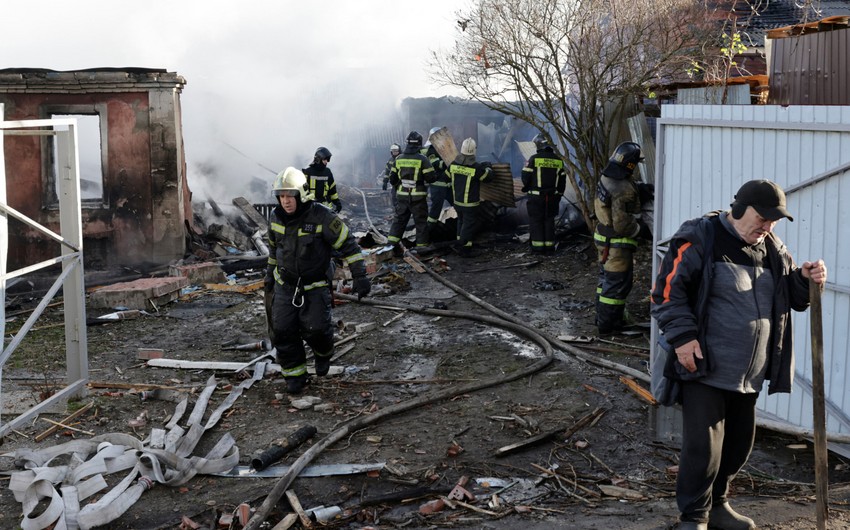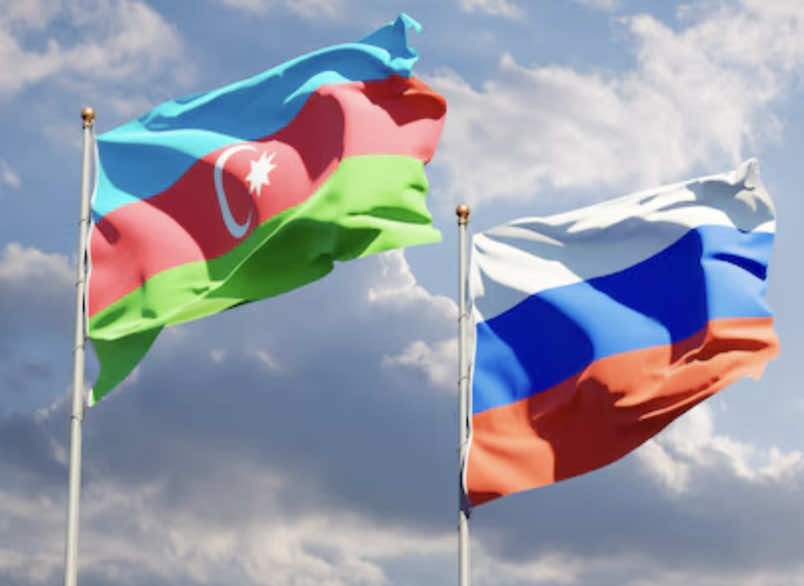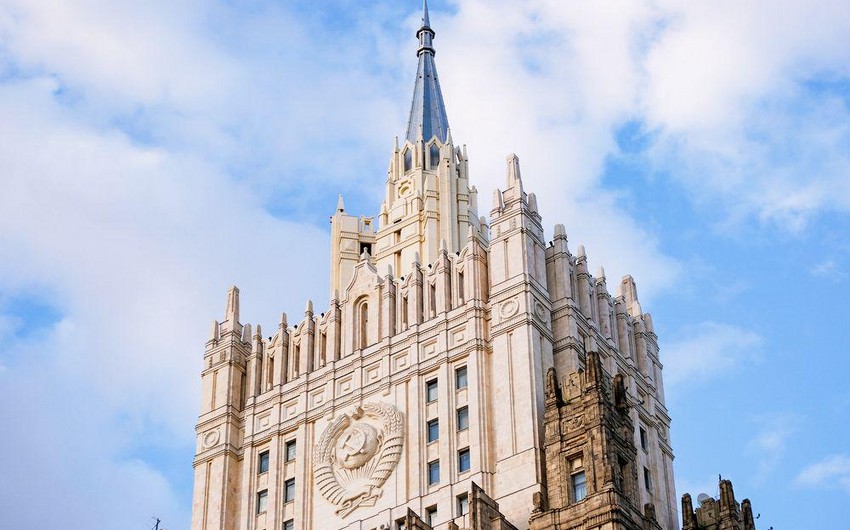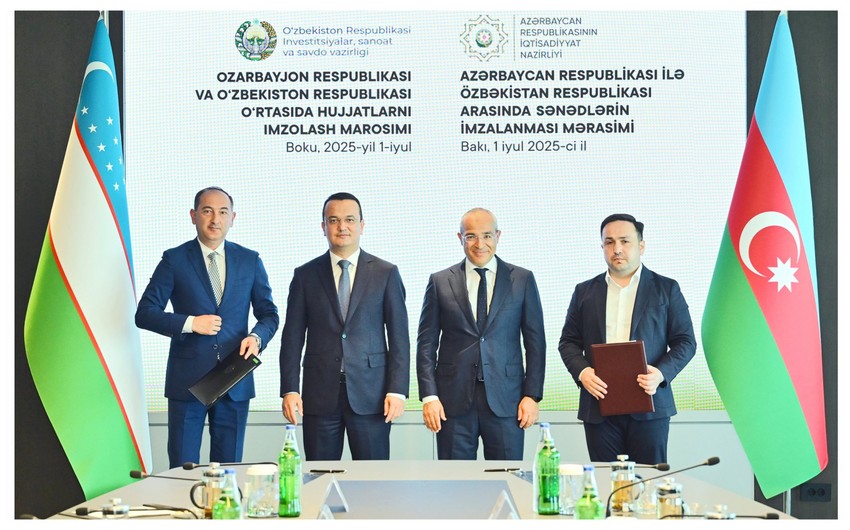Independent political analyst, Rahim Rahimov gave exclusive interview to EDNews.net concerning the Armenian-Azerbaijan conflict over Nagorno-Karabakh. Rahim Rahimov touched upon important matters in his interview, such as the deployment of peacekeeping forces, the solution approaches, identity and the role of civil society and think-tanks in the conflict studies, which all of them are related to the current process of Nagorno-Karabakh conflict.
Rahim Rahimov is contributing analyst for Eurasia Daily Monitor and the Kennan Institute. His articles are published in Jamestown.

- Russian Foreign Minister Sergei Lavrov made statement in the videoconference organized by Gorchakov Public Diplomacy Fund, on Armenia-Azerbaijan conflict over Nagorno-Karabakh. Lavrov in his statement touched upon the phased settlement approach lead to the solution of Nagorno-Karabakh conflict. That has generated intense debate in Armenia and Azerbaijan, and this debate still continues. In both countries, there is a speculation that the main aim remains behind Lavrov’s statement is the deployment of Russian peacekeeping forces in some occupied districts around Nagorno-Karabakh territory of Azerbaijan after the withdrawal of Armenian armed units. From your opinion, how could it be acceptable for Baku to see again Russian bases in its sovereign territory under name of peacekeeping forces?
- While Lavrov’s statement in question must be seen rather in the context of current affairs in the South Caucasus, Russia is absolutely interested in the deployment of its peacekeepers. Apparently, Baku considers the deployment of peacekeepers within the conflict settlement process. Nonetheless, concrete conditions such as the composition of the peacekeepers would matter a lot. Yet expectations or hopes from the deployment of peacekeepers should be kept low and cautious. Thus, the deployments of peacekeepers in Moldova and Georgia have indicated good illustrations to that.
- Armenian authorities reject the phased settlement approach. What are main reasons of that?
- In a nutshell, the phased solution could leave Armenia in weaker position. Armenia wants to use the surrounding occupied districts as a bargaining chip in exchange for a preferred status for Karabakh. There are also other reasons ranging from domestic politics to the regional geopolitics as well. Furthermore, Armenia tries to maintain the longevity of the status quo by twisting on the negotiation process. And the rejection of the package deal is one way of serving that purpose.
- What do you think, which the settlement approach could be appropriate for the solution of Nagorno-Karabakh conflict? Package deal or the Phased settlement?
- Each version of the settlement has its upsides and downsides for both Armenia and Azerbaijan. Before reaching any version of the settlement, there is a certain road of engagement that Armenians and Azerbaijan have to cover themselves to figure out what kind of solution works in a way that is acceptable for both. Yet what matters is the contents of the deal whether the phased or package one. For example, Azerbaijan would accept a package deal if it guaranteed the final status of Karabakh within the territorial integrity of Azerbaijan. Likewise, Armenia would agree to a phased solution if it guaranteed a final status that is favored by Armenia. So, the title of the deal is quite conditional.
- According to published reports by International Crisis Group and the Center for European Policy Studies, conflict has become part of identity of the affected populations in Karabakh. Do you agree on this? If you agree, how can you explain this?
- Yes, indeed, the conflict has embedded in the identities of the populations through various ways. To understand that, one should be aware of the conflict psychology, identity formation, nationalism issues and other aspects.
- You wrote in your article that the relevant public agencies as well as government-linked think tanks should understand the importance of working out novel strategies to engage Karabakh’s ethnic Armenian community as potential citizens of Azerbaijan, also reach out the public of Armenia. In our country, what strategies should civil society, including think-tank centers carry out in order to strengthen connections with Armenian community for peace?
First, let me make it clear that I meant engagement. It is different from strengthening connections.
Engagement is quite sensitive and complicated matter requiring academic and analytical approaches. But the research institutes and in particular government-funded think-tanks in Azerbaijan appear to be lagging behind in analytically, intellectually and otherwise supporting what President Ilham Aliyev describes as “offensive diplomacy”.
In order to develop a novel, effective engagement strategy the think-tanks in the country must understand basically what a think-tank’s function is and what is not. Language courses or monthly news reports are not something that a normal think-tank is expected to do. This kind of activity is reminiscent of the press service of a governmental agency rather than a think-tank. Thus, Azerbaijan lacks qualitatively professional think-tanks dealing with conflict studies and foreign policy issues.
To illustrate my view, I give you a fresh example. The Azerbaijan Community of Karabakh and its leader Tural Ganjaliyev has recently made an appeal to the Armenian community. It is a great initiative but the content of the appeal could be significantly improved to effectively target the Armenian community. That would require a solid, professional work of discourse, speech act, and narrative specialists. That kind of intellectual and analytical support must be offered or at least facilitated by the major government-funded think-tank(s) in particular. But do they do that?! And even more importantly are they capable to do that!?
- You disapprove the works of our government funded think-tanks on conflict studies. But it is interesting for us that what Armenian think-tanks are doing. Please tell us how do the civil society and think-tanks in Armenia play role in the engagement for peace?
- Armenia and Azerbaijan have different priorities, capacities, challenges and opportunities. So the tasks of the think-tanks are different. Shortly, Armenia wants to maintain the status quo, Azerbaijan wants to shake up and change it. Yet the government of Azerbaijan provides generous funding and resources for the governmental think-tanks. The international law, history and other aspects of the conflict are in favor of Azerbaijan. Therefore, the expectations and standards from the Azerbaijani think-tanks must be higher. However, Armenian think-tanks have better international connections through its Diaspora.
Finally, here is another fresh example to support my argument. In reaction to the recently launched film “Parts of a circle” that clearly serves the Armenian narrative of the conflict, Azerbaijani think-tanks complained about that in their commentaries. But those commentaries lacked effective analytical frameworks and theoretic concepts to smash the adversarial narrative of the film in the eyes of foreign audiences.
Interviewed by Yunis Abdullayev

